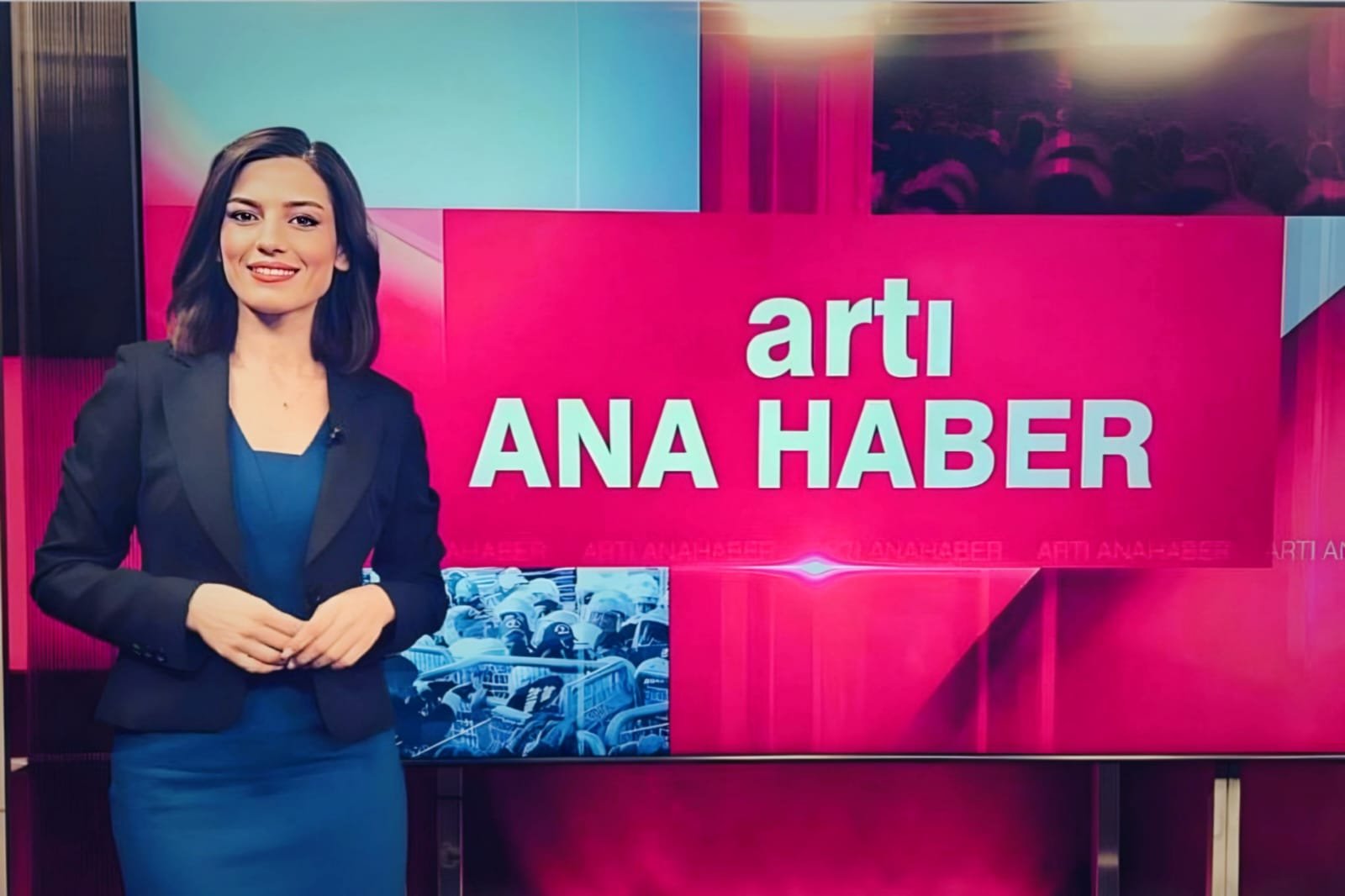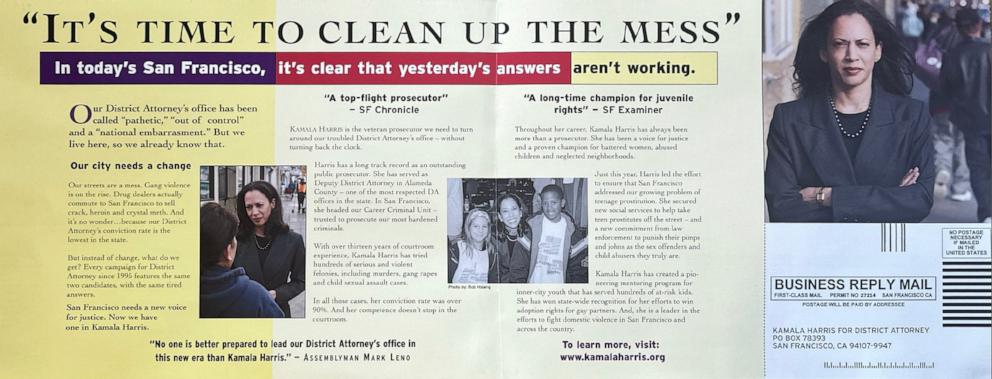Uncategorized
Axel Rudakubana: A Rising Star in the World of Technology and Entrepreneurship
Published
1 month agoon
By
Harry
In recent years, the global technology and entrepreneurial landscape has witnessed the emergence of a new generation of innovators and disruptors who are reshaping industries, creating new business models, and inspiring the next wave of change-makers. Among these trailblazers is Axel Rudakubana, a dynamic entrepreneur, technologist, and visionary who has made significant strides in the tech world. Through his ventures and commitment to driving innovation, Rudakubana has captured the attention of industry experts, investors, and tech enthusiasts worldwide.
This article will take an in-depth look at Axel Rudakubana’s journey, his achievements, and the impact of his work on the technology and entrepreneurial sectors. We will explore his background, career, notable projects, and the philosophy that drives him. Additionally, we’ll examine his influence on the global startup ecosystem, his leadership style, and the challenges he has faced along the way.

Early Life and Education: Laying the Foundation for Innovation
Axel Rudakubana was born in Kigali, Rwanda, in the early 1990s, a period marked by significant transformation in the country following the devastating genocide of 1994. Growing up in a rapidly changing Rwanda, Rudakubana witnessed firsthand the power of technology and innovation in shaping a nation’s future. This experience inspired his deep interest in the potential of technology to solve complex problems and improve lives.
Rudakubana’s academic journey began in Rwanda, where he attended local schools before moving to the United States to further his studies. He enrolled at one of the top universities in the U.S., where he pursued a degree in Computer Science and Engineering. During his time at university, he developed a passion for coding, software development, and the rapidly evolving world of digital technology.
It was at university that Rudakubana began to realize the transformative power of technology in addressing global challenges. Motivated by the possibilities of creating impactful solutions, he started experimenting with various programming languages, algorithms, and software projects. It was clear that his academic background and intellectual curiosity would lay the foundation for a successful career in technology and entrepreneurship.
Entrepreneurship and First Ventures
After graduating from university, Axel Rudakubana wasted no time diving into the world of entrepreneurship. Like many successful entrepreneurs, his journey began with a desire to make a meaningful impact. His first foray into the business world came in the form of a tech startup that sought to leverage mobile technology to improve communication and access to information in Africa.
His startup focused on developing mobile apps that catered to underserved communities, with a particular focus on education, healthcare, and financial inclusion. The idea was to create affordable, accessible technology solutions that could enhance the lives of individuals living in rural areas of Africa, where access to traditional infrastructure such as schools, hospitals, and financial institutions was limited.
Rudakubana’s first project was a mobile learning platform that connected students in rural Rwanda with educators from urban centers. The app provided access to educational resources, online classes, and even virtual mentorship, making education more accessible to young people in remote areas. Though the venture faced numerous challenges, including funding constraints and infrastructure limitations, it provided Rudakubana with invaluable lessons on the realities of launching a tech startup in emerging markets.
Establishing a Global Presence
Despite the early challenges, Rudakubana’s passion and determination kept him moving forward. He quickly realized that technology could serve as a bridge between underserved markets and the global economy, and he expanded his focus to include other industries such as agriculture, logistics, and e-commerce. He began collaborating with international organizations, non-profits, and governments to create innovative solutions for global development challenges.
Rudakubana’s ability to spot opportunities in emerging markets led him to a partnership with several global investors, including venture capital firms, angel investors, and multinational corporations looking to make inroads into Africa’s rapidly growing technology ecosystem. With their backing, Rudakubana was able to scale his ventures and gain a global presence.
One of his most significant breakthroughs came when he co-founded TechBridge Africa, a platform designed to connect African entrepreneurs and startups with international investors, mentors, and resources. TechBridge Africa’s mission was to bridge the gap between the African startup ecosystem and the global tech industry, helping local entrepreneurs access the capital and expertise they needed to scale their businesses. Through this platform, Rudakubana was able to showcase Africa’s innovation potential and attract interest from global investors seeking to support high-growth startups in the region.
Key Projects and Achievements
1. TechBridge Africa
TechBridge Africa quickly became one of Rudakubana’s flagship projects and a symbol of his vision for Africa’s tech future. The platform facilitated collaborations between African entrepreneurs and international stakeholders, resulting in increased investment, partnerships, and global exposure for many emerging startups. TechBridge Africa has been instrumental in supporting various tech initiatives across industries such as fintech, healthtech, agritech, and edtech.
The success of TechBridge Africa also helped cement Rudakubana’s reputation as a leader in the African tech scene. Through the platform, he helped launch several successful startups, many of which have gone on to secure significant funding and achieve rapid growth.
2. Mobile Health Solutions for Africa
Understanding the unique healthcare challenges faced by many African nations, Rudakubana dedicated a significant portion of his entrepreneurial efforts to healthcare technology. He launched MediTech Africa, a mobile health platform designed to provide affordable healthcare services via smartphones. The platform connects patients with doctors and healthcare providers in real-time, offering virtual consultations, health monitoring, and access to medical records.
MediTech Africa was particularly successful in rural areas, where access to healthcare services is often limited. The platform played a crucial role during the COVID-19 pandemic, when it facilitated remote consultations and healthcare services for communities that would otherwise have been cut off from essential care. The platform also partnered with local governments and international organizations to expand its reach and impact.
3. Fintech Innovation in Africa
In addition to healthcare, Rudakubana has been a key player in the fintech revolution in Africa. His fintech venture, PayXpress, is a mobile payments platform that enables users to send money, pay bills, and access financial services without needing a traditional bank account. PayXpress is designed to serve the unbanked population in Africa, where many individuals do not have access to formal financial services.
PayXpress has become a critical tool for financial inclusion, particularly in countries like Rwanda, Kenya, and Uganda. By leveraging mobile technology, the platform has empowered millions of individuals to manage their finances, invest in businesses, and access credit, all through their mobile phones. PayXpress’s success highlights Rudakubana’s commitment to creating impactful solutions that drive economic empowerment in Africa.
Leadership Style and Philosophy
Axel Rudakubana’s leadership style is characterized by a deep sense of purpose and a strong commitment to social impact. He believes in the power of collaboration and strives to create an inclusive environment where diverse ideas and perspectives are encouraged. His leadership approach is also highly results-oriented; he focuses on execution, ensuring that his ventures deliver tangible solutions to real-world problems.
Rudakubana is also known for his resilience and ability to navigate challenges. Throughout his career, he has faced various obstacles, from securing funding to dealing with regulatory hurdles and overcoming market resistance. Yet, his tenacity and unwavering belief in the transformative potential of technology have been key to his success.
Moreover, Rudakubana is a firm believer in mentorship and paying it forward. He has served as a mentor to numerous young entrepreneurs, especially in Africa, helping them navigate the complexities of starting and scaling businesses. He encourages others to embrace failure as part of the learning process and to always remain focused on creating value for society.
Challenges Faced by Rudakubana
Despite his many successes, Axel Rudakubana’s journey has not been without its challenges. One of the most significant hurdles he faced early in his career was the lack of infrastructure and resources in many of the regions he sought to serve. In some areas, internet connectivity was limited, and the necessary technology and tools to launch his ventures were not readily available.
Another challenge Rudakubana faced was navigating the regulatory environment in Africa. Many countries have complex and sometimes unclear laws regarding technology startups, particularly in sectors like fintech and healthcare. Rudakubana had to work closely with governments and regulators to ensure that his ventures complied with local regulations while still being able to innovate.
Additionally, securing funding for startups in emerging markets is often difficult, especially for ventures focused on social impact. However, Rudakubana’s persistence and his ability to attract global investors have helped overcome these barriers, positioning him as a key figure in the African tech ecosystem.
Conclusion
Axel Rudakubana’s journey as an entrepreneur and technologist is a testament to the transformative power of innovation and perseverance. From his early days in Rwanda to becoming a prominent figure in the global tech ecosystem, Rudakubana has continuously sought to leverage technology to solve critical problems and empower communities, particularly in Africa.
Through his ventures like TechBridge Africa, MediTech Africa, and PayXpress, Rudakubana has made a significant impact on multiple industries, from healthcare to finance to education. His leadership, vision, and commitment to social change have positioned him as a role model for aspiring entrepreneurs, especially in developing regions.
As Rudakubana continues to build and scale new ventures, his story serves as a powerful reminder of how technology can be harnessed for social good and how entrepreneurs can use their skills to drive positive change in the world.
FAQs
1. What inspired Axel Rudakubana to become an entrepreneur?
Rudakubana’s inspiration stemmed from his desire to create solutions for the challenges faced by underserved communities, especially in Africa. His early experiences in Rwanda and his academic background in technology led him to believe in the potentional of innovation to drive positive social change.
2. What are some of Rudakubana’s most successful projects?
Some of Rudakubana’s most notable projects include TechBridge Africa, a platform connecting African entrepreneurs with international investors, MediTech Africa, a mobile health platform, and PayXpress, a fintech solution aimed at increasing financial inclusion in Africa.
3. How does Rudakubana manage to overcome challenges in emerging markets?
Rudakubana is known for his resilience and ability to navigate complex challenges. He works closely with local governments and regulatory bodies to ensure compliance and build partnerships with global investors to secure funding and scale his ventures.
4. What is Rudakubana’s leadership philosophy?
Rudakubana’s leadership philosophy is rooted in collaboration, resilience, and social impact. He emphasizes the importance of execution, focuses on delivering tangible solutions, and encourages young entrepreneurs to embrace failure as part of the learning process.
5. What does the future hold for Axel Rudakubana?
The future looks bright for Axel Rudakubana, as he continues to innovate and launch new ventures that address global challenges. His influence in the African tech ecosystem will likely continue to grow, and he will remain a key figure in the global startup scene.
You may like
Uncategorized
Peggy Ann Fulford: A Tale of Deception and Fraud
Published
4 weeks agoon
November 25, 2024By
Harry
Peggy Ann Fulford, a woman who successfully duped some of the most prominent names in sports and entertainment, is a cautionary tale of greed, manipulation, and misplaced trust. Over the years, Fulford posed as a financial advisor, leveraging her charm and claims of elite connections to swindle millions of dollars from unsuspecting athletes. Her story not only highlights the vulnerability of high-income earners but also underscores the importance of financial literacy and due diligence.
The Rise of Peggy Ann Fulford
Born Peggy Ann Barard, Fulford projected an image of success and sophistication. She claimed to have degrees from prestigious institutions like Harvard University, boasted about her wealth from investments, and presented herself as a philanthropist driven by a desire to help others manage their finances. With this facade, she ingratiated herself with high-profile clients, including professional athletes such as NBA star Dennis Rodman, NFL players Ricky Williams and Travis Best, and others.
Fulford’s pitch was compelling: she would manage their finances for free, allowing them to focus on their careers. She assured clients that she was independently wealthy and simply wanted to help them avoid the pitfalls that often plague professional athletes. Her offer of altruistic financial management sounded too good to be true—and it was.
The Fraudulent Scheme
Fulford’s scheme was as audacious as it was effective. Under the guise of managing her clients’ finances, she gained access to their bank accounts, credit cards, and financial records. She promised to pay their bills, invest their money wisely, and secure their financial futures. Instead, Fulford funneled millions of dollars into her personal accounts to fund a lavish lifestyle that included luxury cars, high-end real estate, designer goods, and extravagant vacations.
Her web of lies was intricate. She created fake email accounts, forged documents, and manipulated account statements to hide her theft. When questioned by clients, she offered plausible excuses or deflected blame. For years, her clients—many of whom had little financial expertise—trusted her implicitly.
The Fallout
The unraveling of Peggy Ann Fulford’s scheme began when her clients started noticing discrepancies in their finances. Ricky Williams, a former NFL running back, was among the first to raise concerns. Despite earning millions during his career, Williams discovered that he was facing severe financial difficulties. Further investigation revealed that Fulford had siphoned off substantial sums from his accounts.
Other clients soon came forward with similar stories, and law enforcement agencies launched an investigation. In December 2016, Fulford was arrested and charged with wire fraud, mail fraud, interstate transportation of stolen property, and money laundering. Prosecutors alleged that she had stolen millions of dollars over a decade-long period.
In January 2018, Fulford pleaded guilty to wire fraud. During her sentencing, the court heard emotional testimony from her victims, who described the devastating impact of her actions on their lives. Fulford was sentenced to 10 years in federal prison and ordered to pay restitution to her victims.
Lessons Learned
The Peggy Ann Fulford case offers several important lessons:
1. The Importance of Financial Literacy
Many professional athletes earn substantial incomes but have limited knowledge of financial management. This makes them prime targets for fraudsters like Fulford. Financial education is essential for high-income earners to protect their wealth and make informed decisions.
2. Due Diligence Is Crucial
Fulford’s clients trusted her without verifying her credentials or monitoring their accounts. Conducting thorough background checks and seeking second opinions from independent advisors can help prevent similar scams.
3. Beware of Offers That Seem Too Good to Be True
Fulford’s claim of providing free financial management should have raised red flags. It is crucial to question the motives behind such offers and seek transparent, verifiable arrangements.
4. The Need for Checks and Balances
Regularly reviewing financial statements and maintaining oversight of one’s accounts can help detect irregularities early. Delegating financial management does not mean relinquishing control entirely.
Conclusion
The story of Peggy Ann Fulford is a sobering reminder of the dangers of misplaced trust and the devastating consequences of financial fraud. Her victims, despite their fame and fortune, were left to rebuild their lives and finances after falling prey to her deceit. By prioritizing financial literacy, conducting due diligence, and maintaining oversight, individuals can better protect themselves from similar schemes.
As Fulford serves her prison sentence, her story serves as a cautionary tale for anyone entrusting their financial future to others. Vigilance and education remain the best defenses against fraud.
FAQs About Peggy Ann Fulford
1. Who is Peggy Ann Fulford?
Peggy Ann Fulford, born Peggy Ann Barard, is a former financial advisor who defrauded professional athletes and celebrities out of millions of dollars. She posed as a wealthy philanthropist offering free financial management services.
2. What crimes did Peggy Ann Fulford commit?
Fulford was convicted of wire fraud, mail fraud, interstate transportation of stolen property, and money laundering. She stole millions of dollars from her clients by mismanaging their finances and diverting funds for personal use.
3. How did Peggy Ann Fulford deceive her clients?
Fulford claimed to be independently wealthy and offered free financial management services. She gained access to her clients’ bank accounts and credit cards, promising to handle their finances responsibly. Instead, she used their money to fund her lavish lifestyle.
4. Who were some of Peggy Ann Fulford’s victims?
Notable victims of Fulford’s scheme included NBA star Dennis Rodman, NFL players Ricky Williams and Travis Best, and other professional athletes and entertainers.
5. What was Peggy Ann Fulford’s sentence?
In January 2018, Fulford was sentenced to 10 years in federal prison and ordered to pay restitution to her victims.
6. What can individuals do to avoid financial fraud?
To avoid financial fraud, individuals should:
- Verify the credentials of financial advisors.
- Regularly monitor their financial accounts and statements.
- Seek second opinions from independent professionals.
- Avoid offers that seem too good to be true.
- Invest in financial literacy.
7. Why are professional athletes often targeted by fraudsters?
Professional athletes are often targeted because they earn high incomes but may lack financial knowledge or experience. Their busy schedules and reliance on advisors can make them vulnerable to exploitation.
8. How much money did Peggy Ann Fulford steal?
While the exact amount is unclear, prosecutors alleged that Fulford stole millions of dollars over the course of her fraudulent activities.
9. What lessons can be learned from the Peggy Ann Fulford case?
Key lessons include the importance of financial literacy, conducting due diligence, maintaining oversight of one’s finances, and being cautious of offers that seem too good to be true.
10. Where is Peggy Ann Fulford now?
As of her sentencing in 2018, Peggy Ann Fulford is serving a 10-year sentence in federal prison.
Uncategorized
Lionel Messi and Inter Miami: 2024 Season Analysis
Published
1 month agoon
November 18, 2024By
Harry
Since Lionel Messi’s arrival in the summer of 2023, Inter Miami has undergone a transformation, both on and off the field. Messi’s impact, coupled with high-profile teammates like Sergio Busquets and Jordi Alba, has revitalized the club’s fortunes and elevated Major League Soccer’s (MLS) global profile.
A Record-Breaking Season
Messi’s first full season in 2024 was remarkable. He scored 11 league goals, often in critical moments, and played a vital role in lifting Miami’s performance. His scoring streak early in the season, including seven consecutive matches with goals, demonstrated his enduring quality at age 37. He also helped guide Miami to their first-ever continental tournament appearance in the CONCACAF Champions Cup, though their journey ended in the quarterfinals against Monterrey.
Beyond goals, Messi’s leadership and playmaking reshaped Miami’s style of play, making the team a contender in the MLS Eastern Conference. However, injuries sidelined him for parts of the season, revealing the team’s dependency on their talismanic forward.
Team Success and Challenges
Inter Miami’s performance improved significantly with Messi, achieving competitive standings in the league. Yet, the team faced challenges in the playoffs, bowing out earlier than expected in a loss to Atlanta United. Despite high expectations, this outcome highlighted the need for further squad depth and strategic adjustments to maximize their potential in future campaigns.
Off-Field Impact
Messi’s presence has also brought unparalleled attention to Inter Miami and the MLS. Attendance at games surged, and the club’s visibility skyrocketed, attracting international fans and boosting merchandise sales. His influence extended beyond soccer, bridging sports and entertainment, particularly in a city as dynamic as Miami.
Conclusion
Lionel Messi’s first full season with Inter Miami underscored his enduring excellence and his ability to elevate a team. While the season fell short of ultimate glory, his contributions have set a strong foundation for the club’s future ambitions in MLS and beyond. Inter Miami now stands poised to further capitalize on Messi’s talent as they aim for more consistent success in 2025.
1. How did Lionel Messi perform for Inter Miami in 2024?
Messi scored 11 league goals and was instrumental in Inter Miami’s improved performance, including leading them to their first continental appearance.
2. Did Inter Miami win any titles with Messi in 2024?
The team made significant progress but did not secure any major titles, exiting early in the MLS playoffs and falling in the CONCACAF Champions Cup quarterfinals.
3. What impact has Messi had on Inter Miami off the field?
Messi’s presence has boosted ticket sales, merchandise revenue, and international visibility for both the club and MLS as a whole.
4. What are Inter Miami’s goals for the future with Messi?
The team aims to improve its squad depth and contend for titles, building on the momentum and global attention Messi has brought.
5. Will Messi stay with Inter Miami beyond 2024?
While Messi’s future plans include the 2026 World Cup, his immediate focus remains on achieving success with Inter Miami. His long-term involvement with the club may depend on its competitive progress and his personal goals.
Messi’s tenure with Inter Miami has reinvigorated the team and energized MLS, marking a significant chapter in his illustrious career.
Uncategorized
Prosecutor News: The Role, Challenges, and Impact of Prosecutors in the Justice System
Published
1 month agoon
November 16, 2024By
Harry
In the criminal justice system, the prosecutor is a central figure who wields significant power and responsibility. As the person tasked with prosecuting criminal cases on behalf of the state or the government, a prosecutor plays a crucial role in ensuring that justice is served. Prosecutors not only represent the public’s interest in enforcing the law, but they also ensure that criminal defendants receive fair trials in accordance with the law.
The world of prosecutorial decision-making, legal proceedings, and ethical considerations is vast, and the actions and decisions of prosecutors can have profound effects on individuals, communities, and society as a whole. In recent years, prosecutor-related news has been a focal point of public attention, particularly in cases involving controversial decisions, prosecutorial misconduct, or significant social justice issues.
This article explores the role of prosecutors in the legal system, recent high-profile prosecutor news, the challenges prosecutors face, the ethical dilemmas they encounter, and their impact on the criminal justice process.

The Role of the Prosecutor
Prosecutors serve as the legal representatives of the government, tasked with enforcing the law and ensuring that justice is done in criminal cases. They are responsible for investigating crimes, deciding whether or not to file charges, presenting evidence in court, and, in some cases, advocating for a sentence in criminal cases. The prosecutor’s job is complex and multifaceted, involving legal knowledge, ethical decision-making, and often a delicate balancing act between advocating for justice and protecting the rights of the accused.
Key responsibilities of a prosecutor include:
- Filing Charges: A prosecutor has the discretion to decide whether to bring criminal charges against an individual. This decision is typically based on evidence, legal principles, and the likelihood of securing a conviction.
- Plea Bargaining: Prosecutors often engage in plea bargaining, where they offer a reduced sentence or charge in exchange for a guilty plea. This is a common practice in criminal law, as it helps resolve cases more efficiently and reduces the burden on courts.
- Presenting the Case in Court: Prosecutors are responsible for presenting evidence and arguments in court to prove the defendant’s guilt beyond a reasonable doubt. They are expected to adhere to the rules of evidence and conduct fair, impartial trials.
- Ensuring Justice: While a prosecutor’s goal is to secure a conviction, they are also ethically bound to pursue justice. This means they must disclose exculpatory evidence (evidence that may prove the defendant’s innocence) and avoid pursuing cases where the evidence is insufficient.
- Sentencing Advocacy: In some cases, the prosecutor will make recommendations regarding sentencing. While their role is not to impose a sentence, they advocate for what they believe to be an appropriate punishment based on the seriousness of the crime and the defendant’s history.
High-Profile Prosecutor News: Cases and Controversies
The decisions made by prosecutors can have profound consequences, which is why prosecutor-related news often garners public attention. Recent cases have highlighted the immense power of prosecutors, as well as the ethical dilemmas and challenges they face.
Case Study 1: The Trial of Derek Chauvin (George Floyd)
In 2021, the trial of former police officer Derek Chauvin, charged with the murder of George Floyd, captured global attention. Prosecutor Steve Schleicher led the prosecution in a case that became a landmark moment in the fight against racial injustice and police brutality. The trial was highly publicized, and prosecutors faced intense pressure to bring justice to the victim, George Floyd, and his family.
The prosecution had to present overwhelming evidence, including the now-iconic video of Floyd’s death, to secure a conviction. In this case, the prosecutor’s role went beyond legal strategy, touching on social justice and the broader issue of systemic racism in law enforcement. The successful conviction of Chauvin was seen as a victory for justice, but it also sparked discussions about how prosecutors should handle cases involving police officers and the complexities of holding law enforcement accountable.
Case Study 2: The Rittenhouse Trial
Another example that captured national attention was the trial of Kyle Rittenhouse, who was charged with killing two people during the protests in Kenosha, Wisconsin, in 2020. Prosecutors in this case faced significant challenges. The case became a flashpoint for debates around self-defense, gun rights, and the militarization of protests.
Prosecutor Thomas Binger came under intense scrutiny for his handling of the case, especially after the jury acquitted Rittenhouse on all charges. Critics of the prosecution argued that the charges were politically motivated, while others contended that the prosecution had failed to adequately present their case. In the aftermath of the trial, the prosecutor’s role was heavily debated, with discussions focusing on the impact of political ideologies on prosecutorial discretion and decision-making.
Case Study 3: The Jeffrey Epstein Case
The investigation and prosecution of financier Jeffrey Epstein, who was accused of running a global sex trafficking ring, also brought attention to the role of prosecutors. Epstein was arrested in 2019 on federal charges of sex trafficking minors, but his case had a long history of being handled by state and federal prosecutors. In 2008, Epstein had pleaded guilty to state charges of soliciting prostitution from a minor in Florida, after a controversial plea deal orchestrated by former U.S. Attorney Alex Acosta. The deal, which was widely criticized, allowed Epstein to serve only 13 months in a county jail while continuing his business operations.
Epstein’s case raised serious questions about prosecutorial discretion, ethics, and the role of power in the justice system. In particular, the 2008 plea deal became a focal point for discussions about how prosecutors handle cases involving powerful individuals. Many felt that the deal was an example of prosecutorial misconduct or favoritism, given Epstein’s connections to high-profile political and business figures.
Prosecutors and the Ethical Dilemmas They Face
The role of the prosecutor involves not just technical legal work, but also navigating complex ethical dilemmas. Prosecutors are ethically bound to pursue justice rather than merely seeking convictions. Their duty is to ensure that the guilty are punished, but also to protect the innocent from wrongful conviction.
Key ethical considerations for prosecutors include:
- Brady Rule: Under the Brady v. Maryland ruling, prosecutors are required to disclose exculpatory evidence (evidence that may prove the defendant’s innocence) to the defense. Failing to do so can result in a wrongful conviction. Prosecutors who withhold evidence for tactical reasons violate the defendant’s constitutional rights.
- Discretion in Charging: Prosecutors hold significant discretion in deciding whether or not to bring charges against a defendant. This can be influenced by various factors, including the strength of the evidence, the severity of the crime, and the potential impact of the case on the community. However, decisions should be made with the goal of achieving justice, not based on personal biases or political considerations.
- Plea Bargaining: Prosecutors are involved in plea bargaining, where the defendant agrees to plead guilty to a lesser charge in exchange for a reduced sentence. While plea bargaining can expedite the judicial process, it can also raise concerns about fairness, especially if defendants feel coerced into pleading guilty to crimes they didn’t commit.
- Avoiding Conflicts of Interest: Prosecutors must avoid conflicts of interest, such as when personal relationships or political considerations influence their actions. Ensuring impartiality is crucial to maintaining public trust in the legal system.
- Public Pressure: Prosecutors often work in the public eye, especially in high-profile cases, and face pressure from the media, the public, or even elected officials. Balancing this pressure with the need for impartial legal judgment can be a difficult ethical challenge.
The Challenges Prosecutors Face
Prosecutors operate under immense pressure, both legally and emotionally. They must ensure fair trials while also balancing competing interests, such as public safety, the rights of the accused, and the desire for convictions. Some of the major challenges faced by prosecutors include:
- Heavy Caseloads: Prosecutors often face overwhelming caseloads, with many handling hundreds of cases at a time. The sheer volume of cases can make it difficult to give each case the attention it deserves, leading to concerns about rushed decisions or overlooked evidence.
- Bias and Discrimination: Prosecutors, like all people, can be influenced by their own biases, whether racial, socioeconomic, or ideological. These biases can impact decision-making, such as whom to charge, what charges to bring, and how to negotiate plea deals. There is growing recognition of the need for prosecutors to be aware of their own biases and take steps to address them.
- Public Scrutiny: Especially in high-profile cases, prosecutors are under constant public scrutiny. While public attention can ensure transparency, it can also place undue pressure on prosecutors to make decisions based on public opinion rather than the merits of the case.
- Resources and Support: Prosecutors may struggle with a lack of resources, both in terms of funding and staff. In many jurisdictions, underfunded prosecutorial offices face challenges in gathering evidence, securing expert testimony, and maintaining the necessary infrastructure to handle complex cases.
Conclusion
Prosecutors play a critical role in ensuring justice is served and maintaining the integrity of the legal system. While they are tasked with holding individuals accountable for crimes, they also bear the responsibility of ensuring that the accused receive a fair trial and that justice is not compromised by bias or prosecutorial misconduct. The recent surge in prosecutor-related news has highlighted the power and influence that prosecutors hold, as well as the ethical and practical challenges they face.
From high-profile cases involving racial justice to complex legal maneuvers in controversial trials, prosecutors are central figures in the criminal justice system. Their decisions can affect not just the lives of those they prosecute, but the public’s faith in the fairness of the legal system. In a time of increasing scrutiny, prosecutors must navigate these challenges with integrity and impartiality, ensuring that their actions are guided by the principles of justice.
FAQs
1. What is the role of a prosecutor in a criminal case?
A prosecutor represents the government in a criminal case, deciding whether to file charges, presenting evidence in court, and advocating for a conviction. They are also responsible for ensuring that the defendant’s rights are upheld and that justice is pursued, not just convictions.
2. Can a prosecutor drop charges once they are filed?
Yes, a prosecutor has the discretion to drop charges if they determine that there is insufficient evidence, or if new evidence comes to light that undermines the case. However, this decision can be challenged in some cases, and prosecutors must be cautious when dismissing charges.
3. What ethical challenges do prosecutors face?
Prosecutors must ensure fairness in their cases, avoid bias, disclose exculpatory evidence, and balance the need for convictions with the rights of the accused. Ethical dilemmas may arise in situations where personal biases, public pressure, or political considerations influence their decisions.
4. How do prosecutors decide whether to offer a plea bargain?
Prosecutors typically offer plea bargains in cases where they believe it is in the best interest of justice, such as when the evidence is strong but the defendant’s cooperation might help with other cases. They also consider the severity of the crime, the defendant’s history, and the potential impact on the community.
5. What happens if a prosecutor engages in misconduct?
If a prosecutor engages in misconduct, such as withholding evidence or making biased decisions, it can lead to wrongful convictions, overturned verdicts, or disciplinary action. Prosecutorial misconduct can undermine public trust in the justice system and has serious consequences for both the prosecutor and the case involved.
Trending
-

 Life Style2 months ago
Life Style2 months agoPonderShort.com: A New Hub for Short-Form Content Enthusiasts
-

 News2 months ago
News2 months agoTechdae.frl: Ultimate Guide and Key Insights
-

 Life Style2 months ago
Life Style2 months agoThe Grand Duke Is Mine: Spoilers and Plot Breakdown
-

 Life Style2 months ago
Life Style2 months agoWaethicc: A Global Perspective
-

 News2 months ago
News2 months agoAviva Taeidkashani: A Rising Star in the World of Art and Design
-

 Life Style2 months ago
Life Style2 months agoZoom Realty: Revolutionizing Real Estate in the Digital Age
-

 Tech2 months ago
Tech2 months agoExploring breakthroughtechnologies: The Next Frontier in Technology
-

 Travel2 months ago
Travel2 months agoMake1M.com Luxury Yachts: A Fusion of Innovation, Elegance, and Adventure
